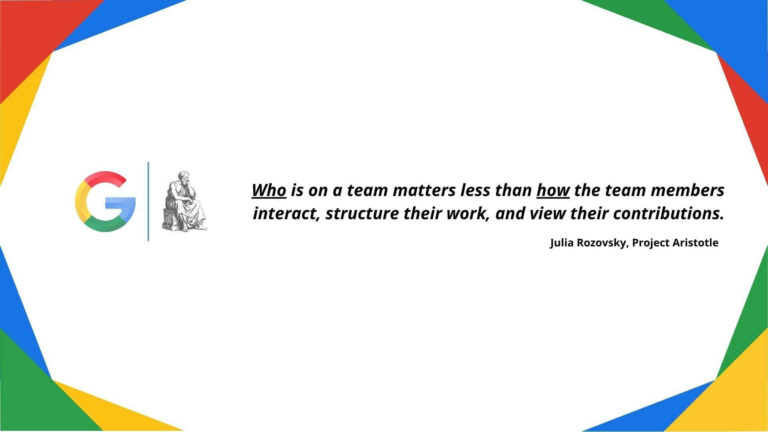In a recent meeting with one of our clients, we sat down to better understand their goals and the team dynamic. Naturally, trust and psychological safety were at the forefront. It was a new group still learning how to work together and how to have tough conversations.
Interactions over Individuals
In Google’s Project Aristotle, researchers studied over 180 teams to understand what makes “great teams.” The biggest finding, contrary to their expectations, was that team success is not driven by talent alone. As Julia Rozovsky wrote, “who is on a team matters less than how the team members interact, structure their work, and view their contributions.”
Think Moneyball, but with businesses instead of baseball. It’s not about the best people, but the right people working well together.
Psychological Safety
Of the five elements Project Aristotle identified for successful teams, psychological safety topped the list: the ability to take risks, challenge ideas, ask questions, and be willing to fail without the fear of negative consequences.
Harvard Professor Amy Edmondson found that many new hires stop speaking up within the first few months. Many don’t want to appear to be slow, behind, unprepared, or incompetent. She also noted that feedback can feel unsafe and the time and space to contribute may be scarce.
Psychological safety can be built back, but slowly. People may need the time and experience to feel they can be uncomfortable without consequence.
Safety in Discomfort
This is the distinction: Psychological safety does not mean freedom from discomfort. It means having the structure and trust to move through discomfort without fear of penalty. To ask what needs to be asked. To say what needs to be said.
Asking a “dumb” question might not feel good, but it might create a necessary pause for the team. Giving critical feedback won’t feel good, but it might be the reason the team says “we avoided X because you spoke up.”




